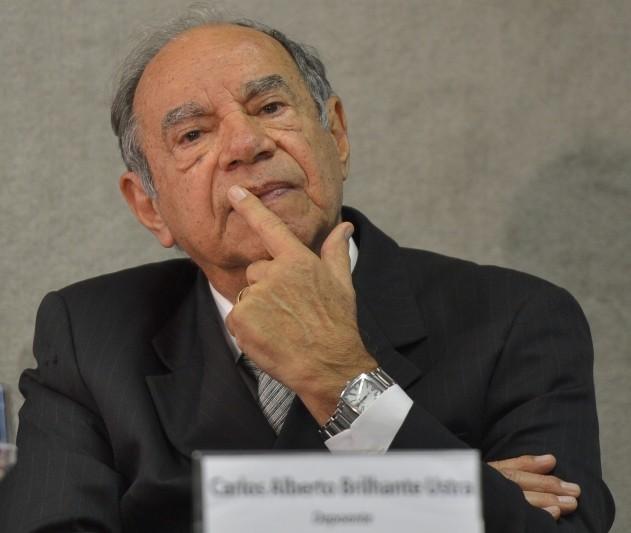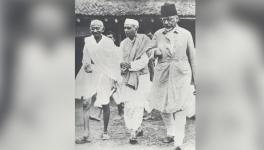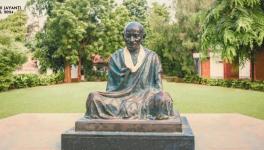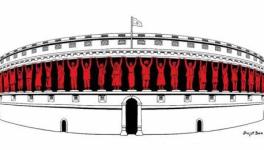India’s Answer to Brazil’s Ustra

As Brazil’s Far Right rises, army man Ustra (who died in 2015), who tortured hundreds, is becoming a cult figure of a kind. Image Courtesy: Wikipedia
The popularity of Good Night Stories for Rebel Girls, which present female role models before young readers, has proved rather phenomenal. Within a span of three years, it has been published in 47 languages around the world and has sold more than a million copies.
The plan to render a Turkish version has met with a big roadblock. A board for the protection of minors from obscene publications of the Turkish government has found them offensive. It recently ruled that these books should be partially banned and treated like pornography.
The reason—they could have a ‘detrimental influence’ on young minds.
It is beyond comprehension what “negative impact” a book that promotes equality can have on impressionable minds, other than the fact that they take the idea seriously and extend it to other arenas of life. Erdogan’s Turkey is no different from Right-wing regimes elsewhere that are very particular about what children should read or not.
Jair Bolsonaro, the controversial Far Right President of Brazil, who is also known as the Trump of the Tropics, was recently in the news for similar reasons. A video of an encounter between students and Bolsonaro has gone viral. In the video, one student tells Bolsonaro, “Send a hug to my teacher.” “Your teacher is a Leftist?” the president replies with a question and the onlookers erupt in laughter. “Tell her to read The Suffocated Truth. Just read it,” Bolsonaro says. “There are facts, not the blah-blah-blah of the Left.” He is referring to a book by Carlos Ustra, a Brazilian army officer and the first military man in the country to be convicted for hundreds of tortures that took place during the military dictatorship in the 1980s.
As Brazil’s Far Right rises, Ustra (who died in 2015) is becoming a cult figure of a kind. But Bolsonaro is his long-time fan. He is a supporter of the military regime that prevailed in Brazil after a 1964 coup. The regime killed hundreds of political opponents and tortured thousands.
Official commemorations of the military coup were stopped in Brazil during the former president Dilma Rousseff’s term. A former Marxist guerrilla herself, she was imprisoned and tortured during the dictatorship. Now the country is returning to marking the anniversary.
Why Bolsonaro Projects a Hate-Figure as Hero
For one, it sanitises more than 21 years of Brazil’s history when the military deposed the ruling president, heaped untold miseries on people and killed many. Two, it rationalises the Right-wing argument that the coup saved Brazil from a “communist takeover”. Three, the role model can further act as “inspiration” for other people to engage in similar acts.
But, how can a torturer and murderer become a role model? Perhaps it is the same dynamic which leads to a terrorist killing completely innocent people and yet emerging as a role model for some. One can look at the Christ Church terrorist attack in New Zealand which left 49 people dead. The attacker claimed he drew inspiration from the Norwegian mass-murderer Anders Behring Breivik, who had killed 77 people on 22 July 2011 in a bomb attack in Oslo.
The 74-page manifesto published online by the suspected Christ Church terrorist includes many references to Breivik. He also drew inspiration from the writings of Dylann Roof, an American who in 2015 killed nine black parishioners at a historic church in Charleston.
The El Paso massacre took place five months after Christ Church in a Walmart in Texas, US, and left 22 people dead and revealed an emboldened streak of white supremacy. The perpetrator of this attack, in turn, was supposedly “inspired” by the Christ Church attack.
A similar logic unfolds here in South Asia. For instance, it is not uncommon to find murderers, terrorists or masterminds of riots being valorised. The grave-turned-shrine of Mumtaz Qadri, the man who brutally gunned down the then Punjab governor Salman Taseer, is a prime example.
According to Qadri, by supporting Asiabi—a Christian woman trapped into a blasphemy case by fanatics in her village—Salman Taseer himself had committed blasphemy. Therefore, he could be declared “wajib ul katl” or worth killing, Qadri argued.
Despite the fact that Islamabad is a city of 1.6 million people, and has 827 mosques—some of which come with madrassas and shrines of a varying degree of religious and political importance—there is no dearth of visitors to Qadri’s grave-turned-Mazar.
“...Qadri made his first appearance in an Islamabad court, which remanded him in custody. A rowdy crowd slapped him on the back and kissed his cheek as he was escorted inside. He was greeted with petals tossed by lawyers who were not involved in the case. Some 300 lawyers told the court they were willing to defend the accused free of charge.”
It is another ignoble chapter in independent India’s history that much on the lines of Qadri, the Malegaon bombing accused who include military personnel, religious persons and others were also showered with rose petals at the behest of Hindutva organisations when they were produced in Nashik and Pune courts.
It is now well known that last year all the big names of the Hindutva brigade hierarchy had felicitated one among them who had admitted a direct role in the Gujarat carnage of 2002. A programme held in Ahmedabad felicitated Keka Shastry, a leader of the VHP or Vishwa Hindu Parishad leader, the armed wing of the Rashtriya Swayamsevak Sangh (RSS). It was through one of his media interviews to rediff.com that people heard how things unfolded in an organised way after the Godhra incident.
Returning to Bolsonaro, where he all but recommends a torturer’s writing to children, one is reminded of the reaction of Samia Bomfim, a São Paulo Congresswoman with the Left-wing Socialism and Liberty party. She said: “Those who encourage this monstrosity are accomplices to the suffering that plagued countless families during the dictatorship. Bolsonaro drinks from the sewers of our history.”
With the ascent of the Hindutva Right in polity as well as society in India, the floodgates of the “sewers of history” have been opened. The Bhakts are having a field day, considering the manner in which “Godse Amar Rahe” trended on the social media site Twitter on October 2, this year in India. This is an indicator that the rot has reached quite deep.
Subhash Gatade is an activist and social and political commentator. Views are personal.
Get the latest reports & analysis with people's perspective on Protests, movements & deep analytical videos, discussions of the current affairs in your Telegram app. Subscribe to NewsClick's Telegram channel & get Real-Time updates on stories, as they get published on our website.
























